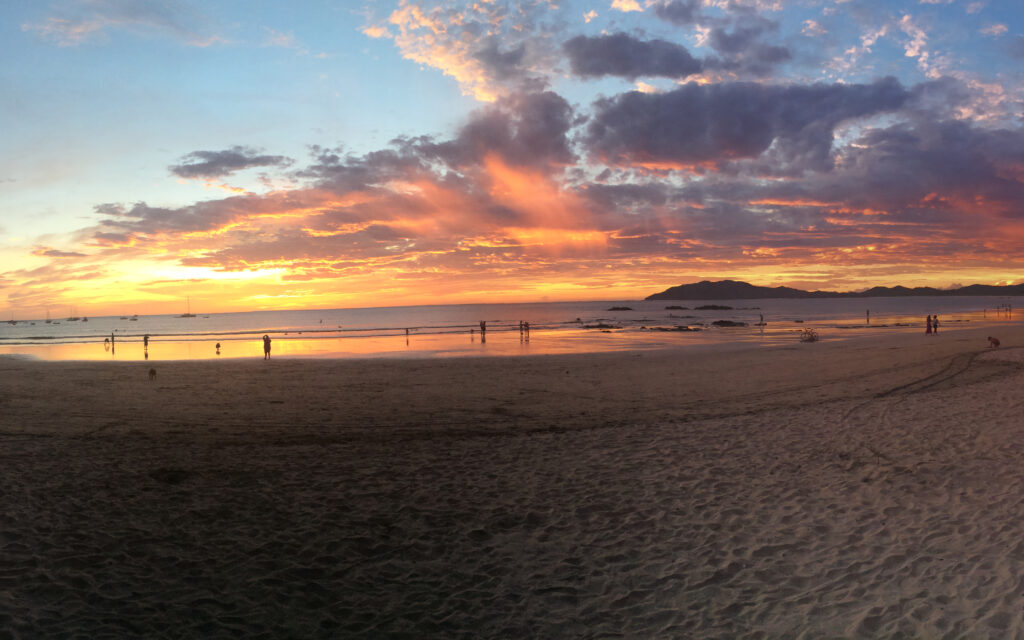Discover Costa Rica: Pura Vida Learning: Exploring Costa Rica through Global Literacy
EDU 202L(1 hrs): Global Literacy and Experiential Learning in Costa Rica
This course explores literacy in the 21st century through a global lens, focusing on global literacy—defined as cross-cultural fluency and responsiveness in understanding, engaging, and communicating in an interconnected world. Students will critically examine how global literacy goes beyond traditional reading and writing, encompassing digital, cultural, and multilingual competencies necessary for global citizenship. Through discussions, project-based learning, and real-world applications, students will develop skills to navigate diverse global contexts. The course concludes with an experiential program in Costa Rica, where students will work alongside local communities, and schools applying their understanding of global literacy to support community-based initiatives.
Spring Short-Term 2026. Specific dates: May 10th – May 23rd. A portion of the course will be conducted in the Spring semester.
Program Information
- Overview
- Location
- Program
- Faculty
- Accommodation
- Excursions
- Selection
- Costs
- Scholarships
- Visa & Passport
- Contact
Overview
This two-week spring program offers students an immersive, short-term internship-style experience in Costa Rica, focusing on education and its role within society. Participants will engage in cross-cultural exchange while working with local children in key educational areas, including:
- Education and Policy: Exploring the structure, challenges, and policies shaping education in Costa Rica.
- Schools and Societies: Examining the relationship between schooling and broader societal influences in Costa Rican communities.
- The Context of Schooling in Costa Rica: Gaining insight into the unique challenges and opportunities within the Costa Rican educational system.
Students will work toward a final project or deliverable related to education, drawing from hands-on experiences with local schools and organizations. The program includes site visits, guest lectures, cultural activities, and excursions to deepen students’ understanding of Costa Rica’s educational landscape and culture. This experiential learning opportunity will allow students to develop global perspectives on education while contributing to meaningful community initiatives.
Location
San Jose, Costa Rica
Program
This two-week spring program offers students an immersive, short-term internship-style experience in Costa Rica, focusing on education and its role within society. Participants will engage in cross-cultural exchange while working with local children in key educational areas, including:
- Education and Policy: Exploring the structure, challenges, and policies shaping education in Costa Rica.
- Schools and Societies: Examining the relationship between schooling and broader societal influences in Costa Rican communities.
- The Context of Schooling in Costa Rica: Gaining insight into the unique challenges and opportunities within the Costa Rican educational system.
Students will work toward a final project or deliverable related to education, drawing from hands-on experiences with local schools and organizations. The program includes site visits, guest lectures, cultural activities, and excursions to deepen students’ understanding of Costa Rica’s educational landscape and culture. This experiential learning opportunity will allow students to develop global perspectives on education while contributing to meaningful community initiatives.
Excursions and site visits will possibly include: Latin dance and cooking classes, Street Art Tours, Doka Coffee Plantation, La Paz Waterfall Garden, Tirimbina Rainforest, and more.
Accommodation
Information coming soon!
Excursions
Excursions and site visits will possibly include: Latin dance and cooking classes, Street Art Tours, Doka Coffee Plantation, La Paz Waterfall Garden, Tirimbina Rainforest, and more.
Selection
The leading faculty is responsible for the selection of each group based on the following criteria:
*Academic suitability
*Social and emotional maturity
*Seriousness of the student in pursuing the academic and cultural aims of the program
Costs
The total cost of Spring Short-term study abroad program can be broken down into four categories:
Program Fee – Usually covers room, in-country travel, excursions, some meals and other costs associated with the program.
Airfare – Varies per location. Students are responsible for their own airfare unless otherwise noted.
Personal Expenses – These will vary depending on the students’ spending habits, cost of living in the destination country, and the number of meals included in the program fee. This may also include visa fees, vaccinations, academic supplies/books and other miscellaneous daily expenses.
Billed by Wake Forest:
Program Fee – $4,272
Personal costs (will fluctuate per student spending and location):
Airfare – $850 (estimated)
Personal Expenses – $720 (estimated)
Estimated total cost – $5,842
Scholarships
Scholarships are available through the Center for Global Programs and Studies.
The deadline for short-term scholarships is December 1st.
Visa & Passport
Passport Information
Students need to check their passport’s expiration date and ensure that it will be valid for at least 6 months after the program’s end date.
Students going on a spring short-term program need to make sure their passport is valid through at least January of the following year.
US passport holders who need to renew their passport should visit the U.S. Department of State’s passport website for information on this process.
Non-US passport holders who need to renew their passport should refer to their home country’s passport office.
Visa Information
If you are a US citizen, you most likely will not require a visa for your summer abroad program. If you do, details will be shared with you by GPS. Non-US passport holders should check with their host country’s embassy or consulate to find out if a visa is required for their program or not.
Contact
Dr. Dani Parker
Assistant Professor of Education
Phone: (336) 758 5347
Email: parkerld@wfu.edu
Amanda Batten
Study Abroad Advisor
Center for Global Programs and Studies
Phone: (336) 758-3194
Email: battena@wfu.edu
Program Dates
| Term | Application Deadline | Program Start | Program End |
|---|---|---|---|
| Spring Short-Term 2026 | December 20, 2025 | Forthcoming | Forthcoming |
Additional Details
| Destinations |
|
|---|---|
| Courses of Study |
|
| Terms |
|
| GPA Requirement | 2.5 |
| Program Term | Short Term |


